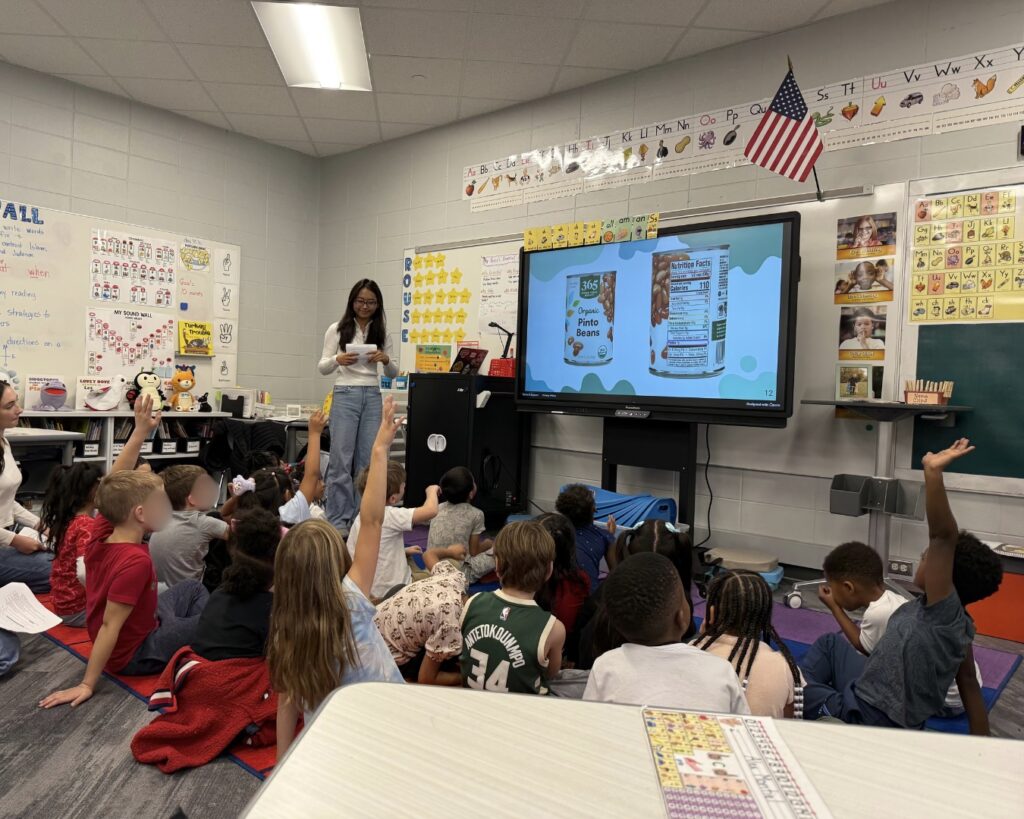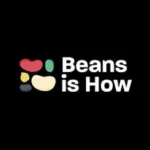It’s the challenge many parents dread: how to persuade young children
to try a new food. And that task can be even more difficult when that
unfamiliar meal is a healthy one.
The BeanMeals research project aims to understand how to achieve healthier diets that are also good for the planet. We’re looking at different stages across the food system – from production to consumption – to understand the barriers to getting UK-grown beans onto plates.
Why UK beans? Well, in the UK we currently import amount large quantities of dried beans from North America, mostly for use in baked beans. We want to determine whether growing domestic beans would lessen the environmental costs of shipping and create new enterprise opportunities here in the UK.
Start with the fork, not the farm
Alongside Beans Is How, we share an ambition to raise the profile of beans as a healthy, affordable and environmentally friendly food. In our research, we’ve subverted the traditional fork-to-farm approach to start with the consumer.
Focusing on British primary school children, we want to learn how we can encourage tomorrow’s food shoppers and menu planners to feel excited about eating beans.
In collaboration with our project partners, our researchers have
been working in six schools in Leicestershire to gauge response to the inclusion of two new varieties of UK-grown beans in school meals. As part of the research, we’ve worked with the pupils to help them understand how beans can bring wide-ranging benefits.
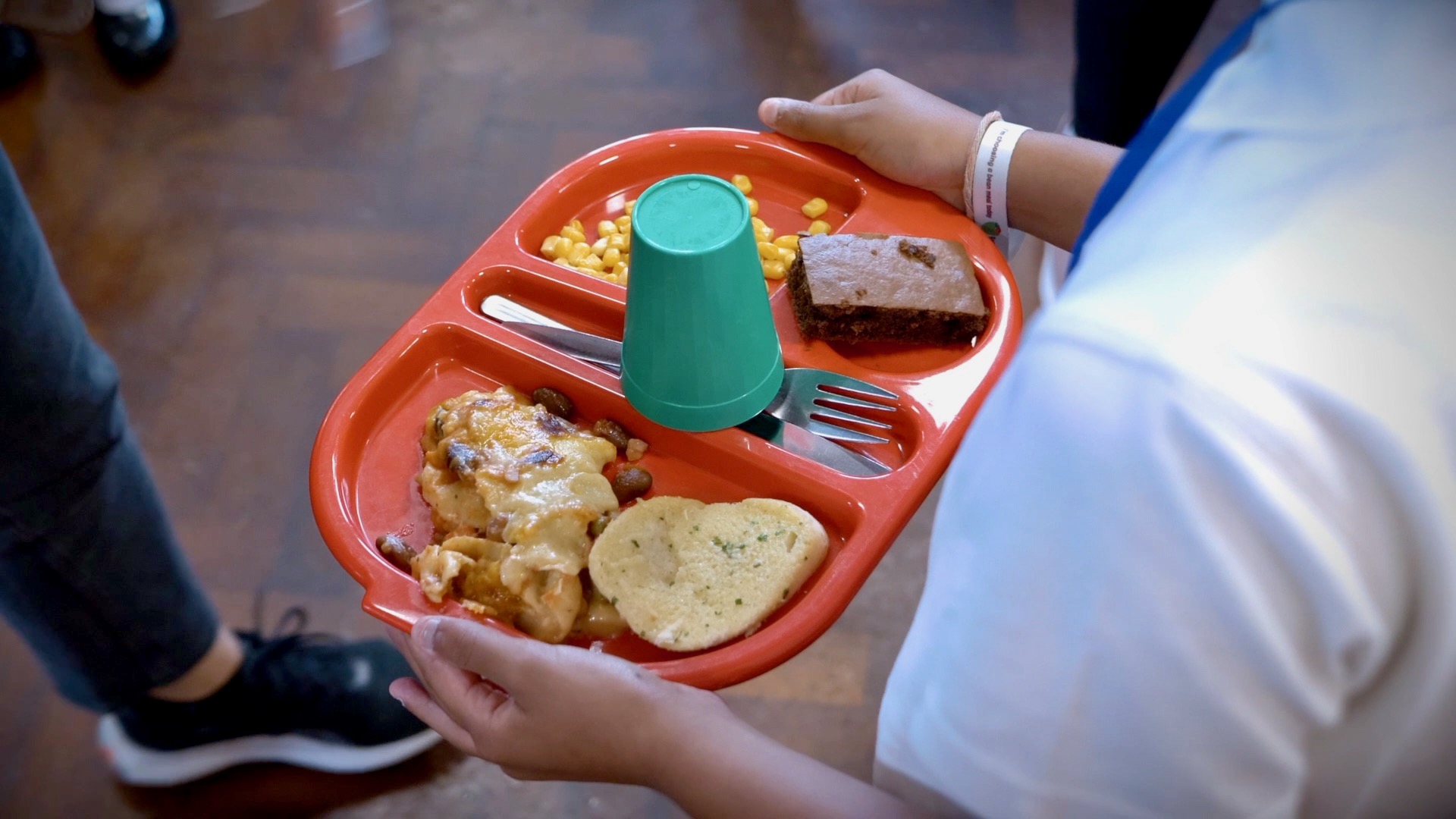
Getting to know beans better
Associating beans with fun was a winning tactic. A session – in the classroom, kitchen or even on the farm – might start with a warm-up exercise to move like a bean. The children delighted in shivering like frozen beans! They also loved playing with and investigating the dried beans. For some, it was the first time they’d interacted with beans as a raw ingredient or considered how beans can mean more than baked beans on toast. Other pupils, from families whose culinary traditions largely feature pulses, were well versed in a variety of beans. Regardless of prior exposure to beans, all the children were delighted by bean facts, eager to know what the smallest bean in the world is, and the largest.
In post-activity interviews, our researchers asked the children how these activities made them feel about the prospect of tasting the bean meals. Their answers included “curious” and “intrigued” as well as “I’ve always tasted baked beans but never the other beans. I never knew that they existed.”
In collaboration with games designer Joanna Craven, we created a board game called Beantopia. Co-developed with children, Beantopia traces the bean’s journey through the food system and is designed to appeal to a sense of competition and fun. The game brings the food system alive in a way the children find irresistible; it helps them understand how beans are good for health and for the earth.
Playing Beantopia also helps them appreciate what it takes to get beans from field to plate and the factors affect that journey, such as weather events. We’re developing educational resources around food system topics to accompany each copy of the game so that Beantopia will live on in each of the schools beyond the life of the BeanMeals project.
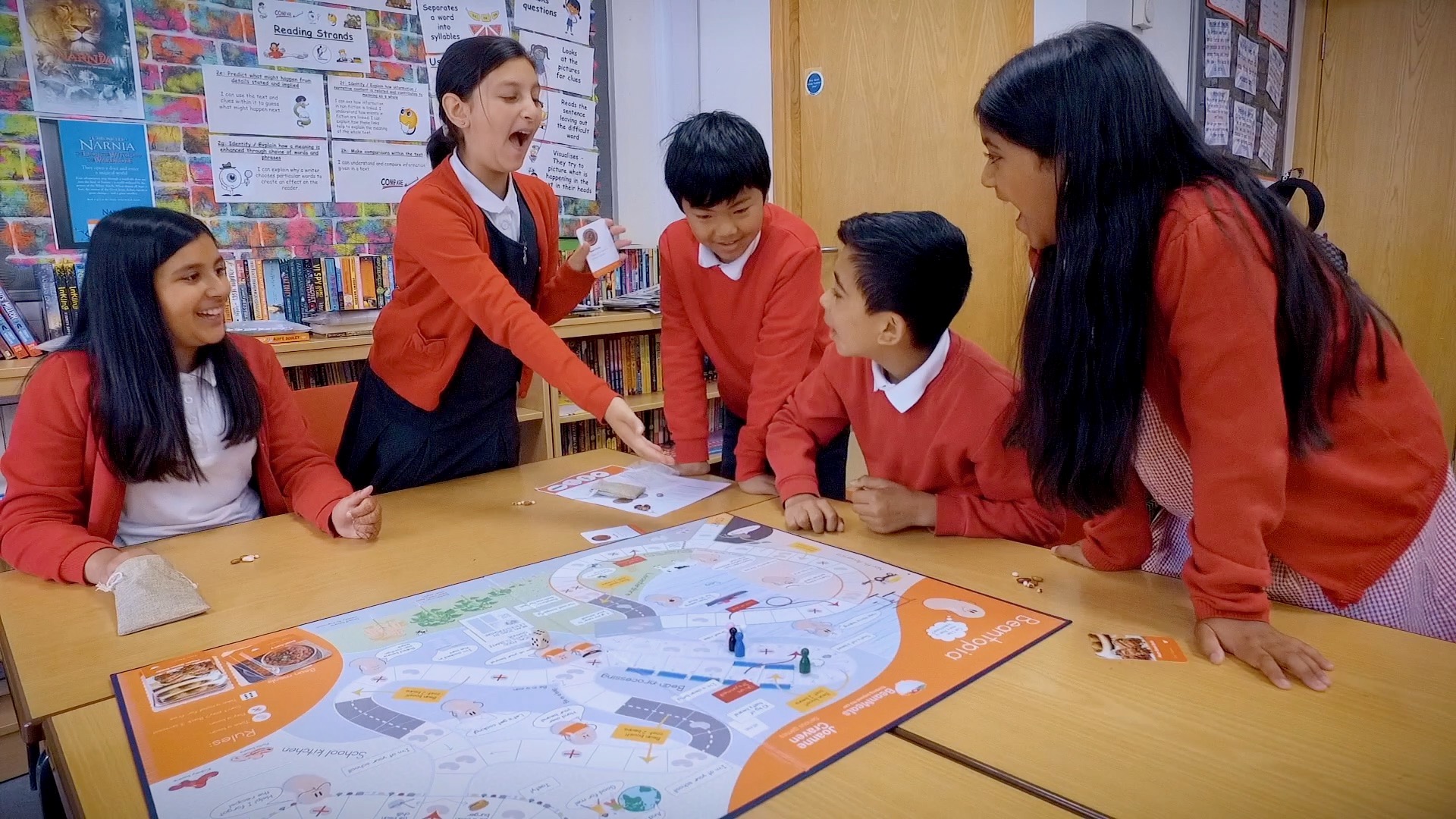
The taste test
In the six participating schools, our research was embraced by everyone involved with getting beans onto school menus: catering companies, lunchtime supervisors and school cooks as well as the teaching staff and senior leadership. The school cooks relished the challenge of adapting recipes to include beans in appealing and original ways. Some of the most popular dishes included lasagne, a celebratory biryani at Eid and sauces for pizza and pasta.
The bean pizza was undoubtedly the most debated dish among the children. It would be fair to say not all of them were initially keen, especially those who visualised a pizza dotted with beans in place of pepperoni! In reality, the beans were cooked into a pizza sauce that was ultimately met with acclaim from even the most sceptical tasters.
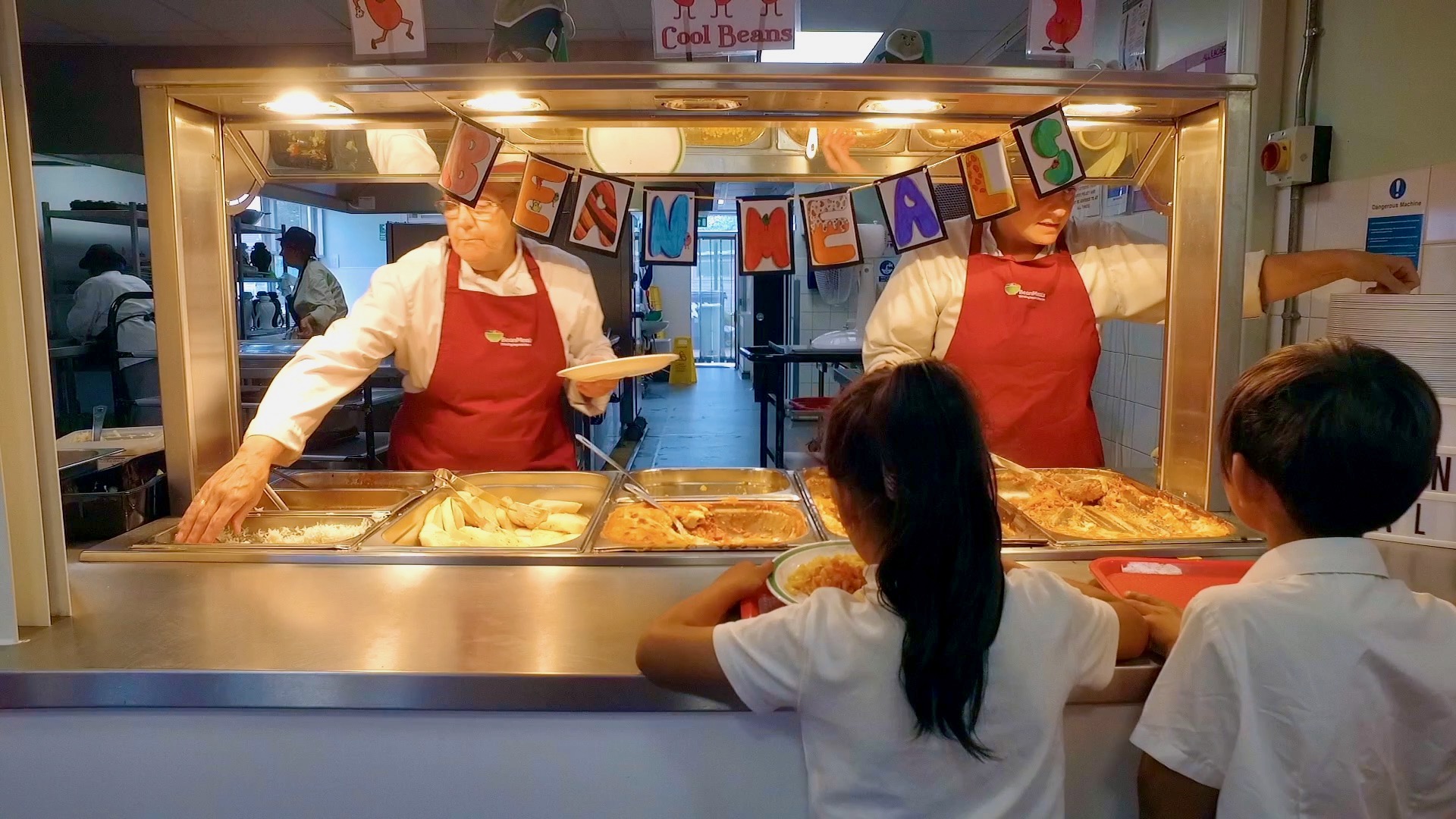
Seeing beans in a new light
“You say the name bean, I just think baked bean. But after this experience, you think, Oh, it’s all of these beans.There are loads of them!” This quote, from one of the children participating in the research, sums up how we created new awareness through the research. Having recently finished our work in schools, our researchers are crunching the data. In other parts of the project, team members are investigating additional factors that will determine the viability of featuring domestically grown beans on UK school menus; these include areas such as production potential, processing capacity, and policy.
While our approach differs from Beans Is How’s #Beansonthemenu challenge, we share an aim for using beans as a vehicle to help us move towards healthier, more sustainable diets. For some, this starts by playing a board game or handling dried beans for the first time, for others it’s about tasting beans in surprising and delicious ways. It will be exciting to see how our combined efforts can contribute to a better future.
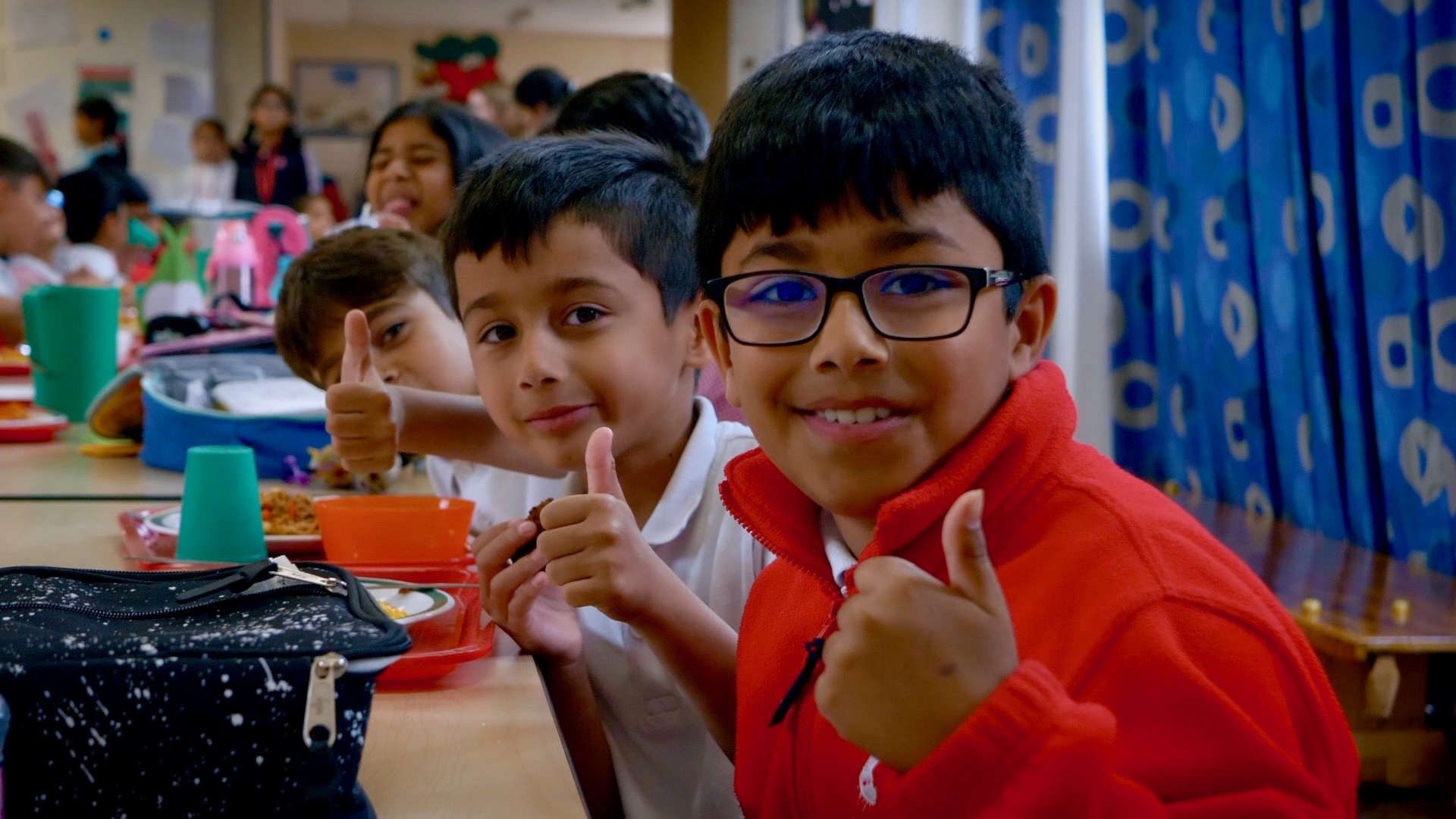
Lisa Didier, Engagement Officer, BeanMeals
About BeanMeals
BeanMeals is an interdisciplinary research project based at the Environmental Change Institute at the University of Oxford. It is funded by the Transforming the UK Food System for Health People and a Healthy Environment SPF Programme, which aims to fundamentally transform the UK food system by placing healthy people and a healthy natural environment at its centre.

